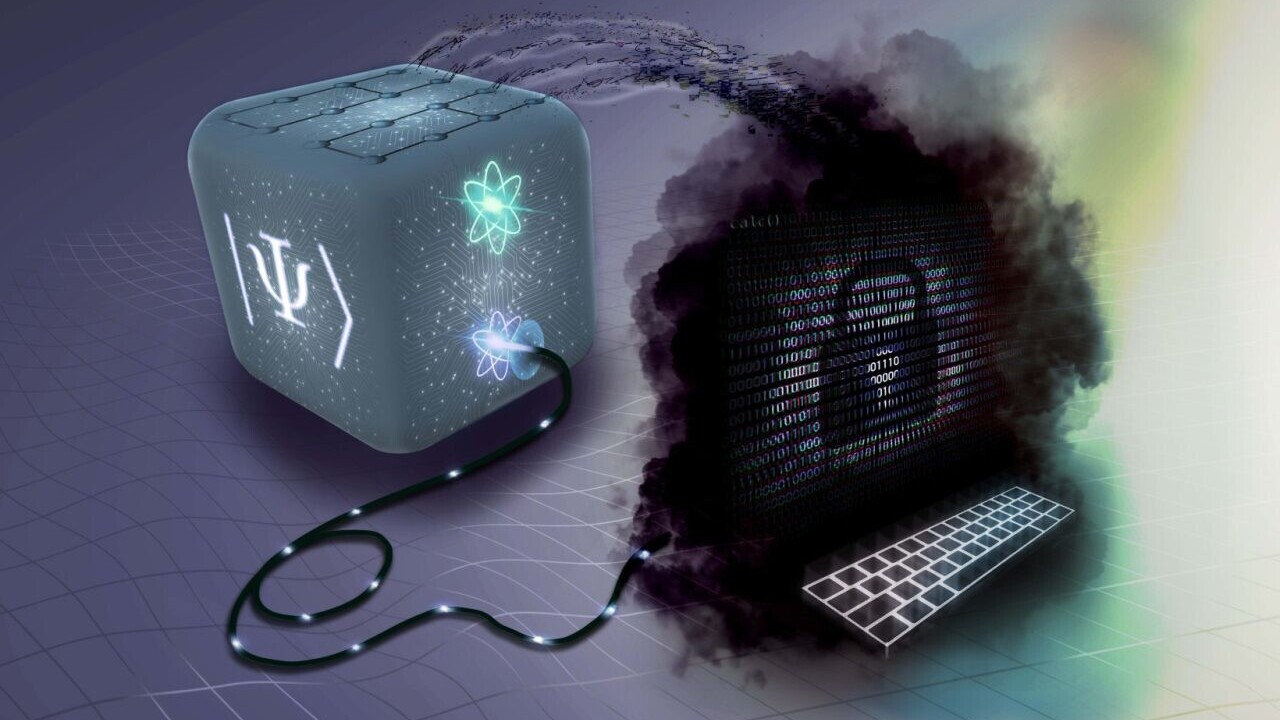
Say quantum technologies and most people probably still imagine something decades into the future. But, as a new report released today demonstrates, quantum is already here — especially as it relates to the telecom industry.
After years of incremental progress confined to research institutions, the emerging quantum technology sector has begun to gather commercial momentum. While most of the developments have been related to the quantum computing domain and its future promises, there are many other use cases for quantum tech — applicable already today.
Telecoms a driving force for quantum adoption
Quantum communications, including networks and forms of encryption, are currently being commercialised by a growing number of major telecom industry players and startups throughout the world. And Europe has a major part to play.
According to a report released today by Infinity, a startup and ecosystem support branch of Quantum Delta NL, 32% of the 100 quantum startups, scaleups, and SMEs servicing the telecom and telecom infrastructure sector are based in continental Europe. Germany, the Netherlands, France, Switzerland, and Spain are the strongest ecosystems. An additional 14% are in the UK and Ireland.
In addition, 50% of the enterprises that serve as consumers of the technology are located in continental Europe, with a further 11% in the UK and Ireland. Indeed, there are already more than 25 quantum networks being deployed in Europe today.
This includes a commercial quantum network in London, launched through a partnership between BT and Toshiba Europe, and an EU-wide quantum communications network being developed by Deutsche Telekom and two consortia called Petrus and Nostradamus.
“Telecom companies are becoming a driving force for real-world adoption of quantum technology,” said Teun van der Veen, Quantum Lead at the Netherlands Organisation for Applied Scientific Research (TNO). “They are at the forefront of integrating quantum into existing infrastructures and for them it is all about addressing end-user needs.”
Quantum networks
Quantum networks utilise the unique properties of quantum mechanics such as superposition and entanglement to connect systems and transmit data securely. This is done through quantum channels, which can be implemented using optical fibres, free-space optics, or satellite links.
The promise of quantum networks and quantum encryption is that they would be near-impossible, if not entirely impossible, to hack, thus offering ultra-secure forms of communication.
As Infinity’s report states, they can be used to establish quantum-secure links between data centres, Earth and spacecraft and satellites, military and governments, trains and rail network control centres, hospital and health care sites, etc.
Quantum networks can also form the backbone of a global quantum internet, connecting quantum computers in different locations. Furthermore, they can offer opportunities for “blind” cloud quantum computing, which keeps quantum operations a secret to everyone but the user.
QKD and post-quantum cryptography
With geopolitical tensions on the rise and looming cybersecurity threats, companies and governments are increasingly looking into ways of securing IT infrastructure and data.
Perhaps unsurprisingly then, Infinity’s report finds that Quantum Key Distribution (QKD) is the most popular use of quantum technology in the telecom sector. QKD utilises quantum mechanics to allow parties to generate a key that is known only to them, and is used to encrypt and decrypt messages.
One startup that knows a lot about QKD technology is Q*Bird. The Delft-based communications security company just raised €2.5mn to further develop its QKD product Falqon, already in trial with the Port of Rotterdam (the largest port in Europe).
“Quantum communications solutions see increased interest across digital infrastructure in the EU,” said Ingrid Romijn, co-founder and CEO of Q*Bird. “Together with partners like Cisco, Eurofiber, Intermax, Single Quantum, Portbase and InnovationQuarter, Q*Bird is already testing quantum secure communications in the Port of Rotterdam using our novel quantum cryptography (QKD) technology.”
Romjin further stated that moving forward, more industries and companies will be able to implement scalable solutions protecting data communications, leveraging next-generation QKD technology.
Another technology garnering interest is post-quantum cryptography (PQC). Q-day (the day when a quantum computer “breaks the internet”) is, in all probability, still some way into the future.
However, most classical cryptography methods will be vulnerable to hacking from a sufficiently powerful quantum computer sooner. PQC algorithms are designed to be secure against both classical and quantum attacks.
Other technologies with potential applications for the telecom industry are quantum sensors, clocks, simulation, random number generation, and, naturally, quantum computing.
Challenges for Europe’s quantum tech sector moving forward
Meanwhile, despite the increasing market interest, the report also finds that Europe’s quantum technology startups require more support and investment to help achieve the technical and market breakthroughs to drive the field forward.
Currently, only 42% of the quantum tech for telecom startups worldwide have external funding, having raised a total of €1.9bn between them. And despite the relative forward-thinking approach of the EU as demonstrated by the Deutsche Telekom network project, the US still leads in terms of private sector activity and investment.
Other challenges include raising awareness among business leaders, increasing skilled workforce, overcoming technical limitations, and building a stronger business narrative.
These can be surmounted partially through more regulatory standardisation, more collaboration with industry, and more early-stage support and investment for startups, the report says.
Market opportunities and challenges for quantum in telecoms
The key market opportunities for the quantum communications sector going forward are in government bodies including military and security services, financial institutions, and critical infrastructure departments, as well as companies in the energy, defence, space, and technology sectors.
“Growing collaboration between enterprises and startups in telecom signals the industry’s commitment to integrating quantum solutions into commercial applications,” said Pavel Kalinin, Operations and Platforms Lead at Infinity. “Successful implementation of such technologies will depend on coordinated efforts to prepare the workforce, facilitate collaborations, and set industry benchmarks and standards.”
You can read the report in its entirety here.
Get the TNW newsletter
Get the most important tech news in your inbox each week.




